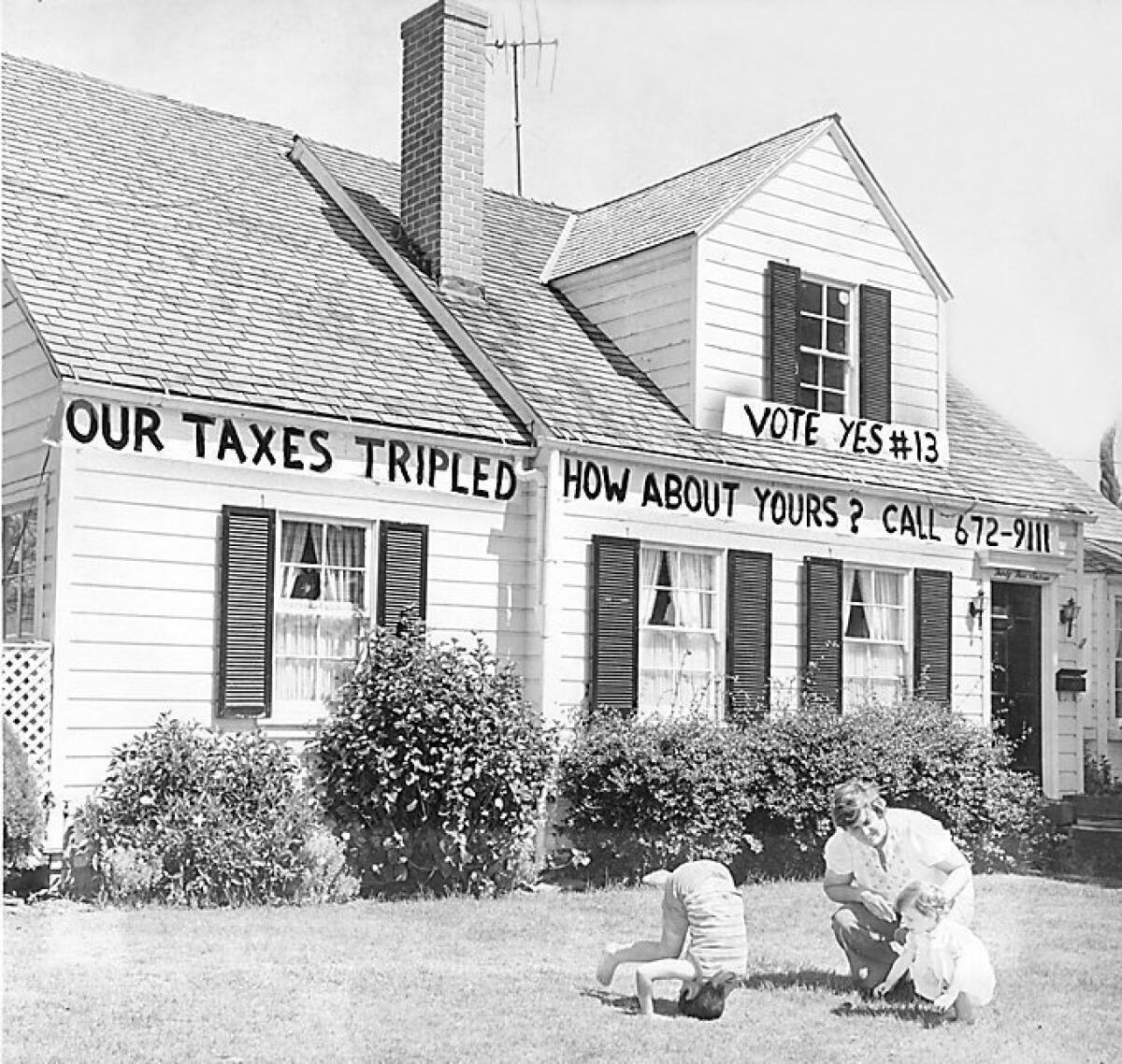Letters to the Editor: The trickle-down effects of taxing commercial properties

- Share via
To the editor: The myth promoted by supporters of a split roll to exempt commercial property from Proposition 13 is that the consumer won’t pay for this. It will be paid for by greedy corporations.
Two things to consider: First, high corporate taxes induce corporations to locate elsewhere. Second, you can be sure the added tax will trickle down to you.
Who are the supporters of this split roll? Public employees and public employee unions. Sadly, this has little to do with funding education and everything to do with diverting the money to shore up underfunded pension funds. I wonder if public employee support would be as strong if money generated by the split roll could not be used pension enhancement.
I believe Proposition 13 reforms would have a better chance of success if California would reform its onerous income tax. Otherwise the Proposition 13 split roll is just another tax that induces more companies to leave California.
George Orff, Laguna Beach
To the editor: Proposition 13 is not about voters’ “reluctance to pay more money for more government services.” It’s about homeowners, especially those on fixed incomes, being taxed out of their homes by politicians who won’t make tough decisions. All taxpayers should bear the burden of the politicians’ ambitious programs, not just property owners.
Gregory Urbach, Reseda
To the editor: I can’t wait to vote in favor the limitations to Prop. 13. I only wish there were more limitations, i.e. equality in homeowner taxation.
I was not a senior in the early ‘80s when I bought a 1,600 square foot condominium, but I am now, 30 years later, and have paid from $5,000 to $6,000 in property tax all these years; and yes, there is maintenance too: $650 a month.
Why should someone with a much larger and more valuable residence pay far less than I pay? I realize that it is probably not politically feasible to make commercial properties pay their fair share and, at the same time, increase homeowner taxes, but let us eventually go for reasonable equality. This state will then be able to afford improvements not only for education, but also for infrastructure, environmental technologies and the reduction of homelessness.
Lynne Shapiro, Marina Del Rey
More to Read
A cure for the common opinion
Get thought-provoking perspectives with our weekly newsletter.
You may occasionally receive promotional content from the Los Angeles Times.










